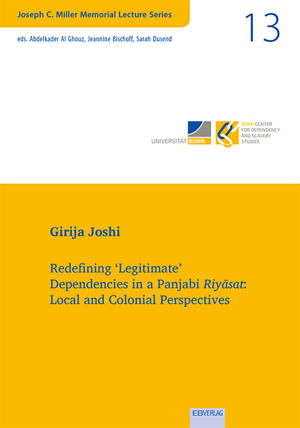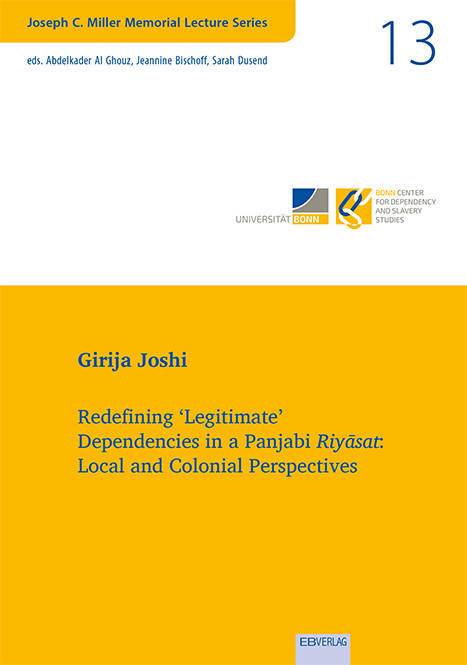
Bedankt voor het vertrouwen het afgelopen jaar! Om jou te bedanken bieden we GRATIS verzending (in België) aan op alles gedurende de hele maand januari.
- Afhalen na 1 uur in een winkel met voorraad
- Gratis thuislevering in België vanaf € 30
- Ruim aanbod met 7 miljoen producten
Bedankt voor het vertrouwen het afgelopen jaar! Om jou te bedanken bieden we GRATIS verzending (in België) aan op alles gedurende de hele maand januari.
- Afhalen na 1 uur in een winkel met voorraad
- Gratis thuislevering in België vanaf € 30
- Ruim aanbod met 7 miljoen producten
Zoeken
Vol. 13: Redefining 'Legitimate' Dependencies in a Panjabi Riyasat: Local and Colonial Perspective
Girija Joshi
€ 14,95
+ 29 punten
Omschrijving
This essay traces the changing contours of a Panjabi state during the eighteenth and nineteenth centuries. It focuses on the Kalsia principality, founded by a family of rural warlords who had transformed themselves from village elders to the rulers of a distinct principality within a generation. Using a chronicle left by a retainer and scribe of the Kalsia administration, it studies a handful of the chiefly lineage's dependents (tabe in), to try to understand what their position within the ruling household was, what rendered them dependent, and what kept them loyal. It argues that jural status was of some, but not determinant, importance in creating deeply hierarchical bonds; just as important was the value that patron and client, master and slave alike attached to such unequal relations, as a source of honour, status, and influence. This value was moreover shared across and attached to a range of relationships, from kinship bonds to servitude, blurring the distinction between family and service. This began to change, at least in law, in the wake of colonization, as the British sought to impose fixed boundaries on the household, to progressively strip ruling houses of their land.
Specificaties
Betrokkenen
- Auteur(s):
- Uitgeverij:
Inhoud
- Aantal bladzijden:
- 58
- Taal:
- Engels
- Reeks:
- Reeksnummer:
- nr. 13
Eigenschappen
- Productcode (EAN):
- 9783868934199
- Verschijningsdatum:
- 8/12/2022
- Uitvoering:
- Boek
- Afmetingen:
- 145 mm x 6 mm
- Gewicht:
- 108 g

Alleen bij Standaard Boekhandel
+ 29 punten op je klantenkaart van Standaard Boekhandel
Beoordelingen
We publiceren alleen reviews die voldoen aan de voorwaarden voor reviews. Bekijk onze voorwaarden voor reviews.









